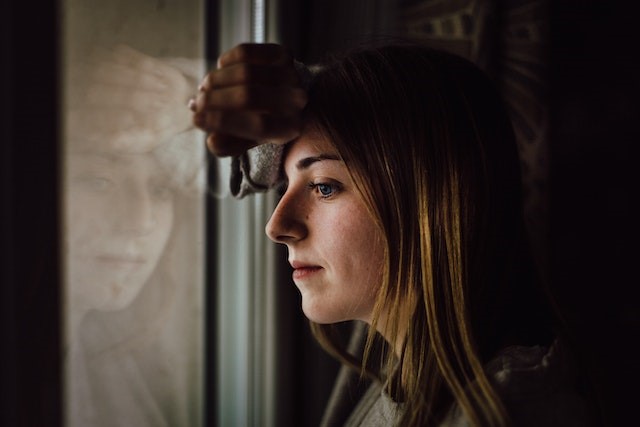The Top 5 Relapse Triggers
 Understanding what causes a relapse is essential in maintaining your sobriety because getting clean and sober is the best decision an addict or alcoholic can make. But the unfortunate truth is that relapse is common.
Understanding what causes a relapse is essential in maintaining your sobriety because getting clean and sober is the best decision an addict or alcoholic can make. But the unfortunate truth is that relapse is common.
Research shows that 40 – 60% of people relapse within the first month of leaving an inpatient drug or alcohol rehabilitation programme and up to 85% relapse within the first year. Despite the statistics, preventing a relapse is completely possible especially if you know what is likely to cause a slip and have developed the skills to deal with your triggers.
To help recovering addicts stay in recovery we have compiled a list of the top five causes of a relapse with additional tips on how to cope with these potential setbacks.
When a person decides to put down their substance of choice and begin the recovery process, it is highly recommended that they avoid the people, places and things that are connected to their active addiction. New romantic relationships as well as boredom and isolation can also be powerful triggers that can cause a slip up in early recovery.
People
Individuals with a drug or alcohol addiction usually surround themselves with other people who also drink or use drugs in excess – people who are also addicts or who encourage and enable substance abuse. The individual may place a lot of value on these relationships especially if he or she does not have any friends other than those who use drugs or drink.
Often these ‘party’ friends have been good to the addict who is new in recovery and it may seem unfair to remove these people from his or her life. Also, the prospect of having to find new friends can also be overwhelming. But keeping yourself safe by putting up boundaries is essential for a strong recovery.
It is recommended that the newly sober individual removes using and drinking friends from his or her life no matter how comfortable it may feel to be surrounded by old, familiar friends. It is important to remember that your life is more important than these unhealthy relationships. There are many 12-step fellowships an addict in recovery can lean on for support and where he or she can find like-minded friends with whom new – and healthy – relationships can be forged.
Places
 Going to places where you used to use drugs or drink can bring back powerful memories that may trigger you to pick up your substance of choice again. You might think it harmless to drive past your dealer’s house or visit a bar where you often drank but it is incredibly important to avoid these places in early recovery.
Going to places where you used to use drugs or drink can bring back powerful memories that may trigger you to pick up your substance of choice again. You might think it harmless to drive past your dealer’s house or visit a bar where you often drank but it is incredibly important to avoid these places in early recovery.
Places to avoid include bars, liquor stores, strip clubs and parties. In early recovery, all social situations where alcohol and drugs will be available should be avoided. After some time, when you feel stronger in your recovery, you may be able to partake in ‘normal’ social situations but you should always have an exit plan in place should you get triggered.
Many addicts often use in their homes and they may not be able to avoid their place of residence. In these cases, it is recommended that the individual spends the first few months of sobriety in a halfway house or sober house if possible. If this is not possible, it may be helpful to change the look and feel of their home environment by redecorating or rearranging the furniture.
Things
Addiction has a powerful impact on the human brain and even seemingly miniscule things may trigger an urge to use or drink. Coming across bottles or cans of alcohol can be a trigger for an alcoholic and these items should be removed from the home. F
or an addict, any paraphernalia used in their addiction should be removed from the home. This can include the obvious: Bongs, pipes, cut straws, syringes, and empty pill bottles. But many other things may be impossible to avoid such as credit cards, drinking glasses, mirrors and lighters.
In these cases, it is important to stay mindful and identify what may be triggering a craving to use. Increasing your level of awareness can prevent a subconscious urge from turning into a relapse.
Romantic relationships and intimacy
If you are not married or in a long-term relationship when you enter recovery, it is highly recommended that you remain single for the first year of your sobriety until you are more stable in your recovery. It is common for recovering addicts to replace the addictive substance with an intimate partner.
The problem in this scenario is that should the new intimate relationship fail, the person may not be stable enough to resist filling that void by going back to their substance of choice. It is also recommended to stay out of intimate relationships in early recovery because the power attached to romantic relationships may be too overwhelming to navigate sober and could therefore trigger a relapse.
Another reason to avoid intimacy in early recovery is because addicted individuals may never have experienced sex while sober and, as such, sex can be a powerful trigger to use drugs or drink.
Boredom and isolation
In active addiction, much of a person’s time is spent on getting, using and recovering from using their substance of choice. Therefore, many people in early recovery might have a lot more free time to themselves and they become bored or feel lonely in these periods. It is very important to stay busy in early recovery to avoid boredom and isolation.
It is suggested to engage in healthy activities that give a person pleasure such as sports, gym or other hobbies. Addicts in early recovery should join a 12-step fellowship where they have the opportunity to meet other like-minded people. Building relationships with other people in recovery is a huge advantage and often makes recovery easier or more enjoyable. Spending too much time alone should be avoided as loneliness is one of the most common causes of a relapse.
While being aware of potential triggers and putting strategies in place to avoid a relapse is essential, it is important to remember that if you do relapse you should get help and return to recovery as soon as possible. Often people get stuck in the guilt and shame attached to a relapse which prevents them from getting help prolonging the relapse. Don’t let a relapse consume you – get help today!
Are you worried that you or a loved one has an alcohol problem? Contact Changes today for a free assessment.
There is always help and there is always hope and help available. Changes Rehab Johannesburg is here to guide and support you through each step.
Call 081-444-7000 or email [email protected] to get the help you need today.